 Petzlover
Petzlover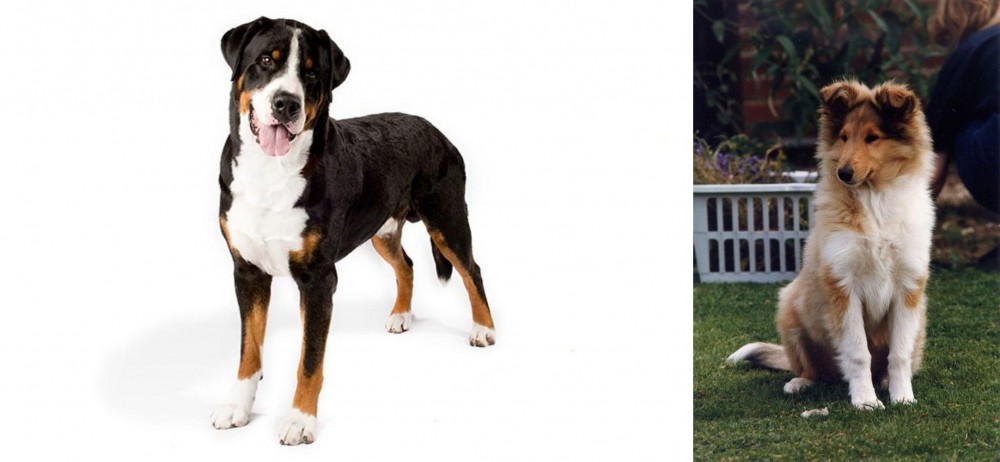 Greater Swiss Mountain Dog is originated from Switzerland but Rough Collie is originated from United Kingdom. Greater Swiss Mountain Dog may grow 11 cm / 5 inches higher than Rough Collie. Greater Swiss Mountain Dog may weigh 40 kg / 89 pounds more than Rough Collie. Greater Swiss Mountain Dog may live 3 years less than Rough Collie. Both Greater Swiss Mountain Dog and Rough Collie has same litter size. Both Greater Swiss Mountain Dog and Rough Collie requires Moderate Maintenance.
Greater Swiss Mountain Dog is originated from Switzerland but Rough Collie is originated from United Kingdom. Greater Swiss Mountain Dog may grow 11 cm / 5 inches higher than Rough Collie. Greater Swiss Mountain Dog may weigh 40 kg / 89 pounds more than Rough Collie. Greater Swiss Mountain Dog may live 3 years less than Rough Collie. Both Greater Swiss Mountain Dog and Rough Collie has same litter size. Both Greater Swiss Mountain Dog and Rough Collie requires Moderate Maintenance.
 Hailing from Switzerland, and one of its oldest dog breeds, the Greater Swiss Mountain Dog has a dubious history in that there are a number of theories as to its origin. He is closely related to the Bernese Mountain Dog, Saint Bernard and Rottweiler.
Hailing from Switzerland, and one of its oldest dog breeds, the Greater Swiss Mountain Dog has a dubious history in that there are a number of theories as to its origin. He is closely related to the Bernese Mountain Dog, Saint Bernard and Rottweiler.
Of all the theories, the one that says he is descended from large, mastiff-like dogs is a popular one. He used to be a herding- and guard dog, but also was used to pull carts of farm produce.
It was in the 1900s that the dog’s numbers started dwindling. In 1908, canine researcher, Albert Heim recognized the dogs as being large members of the Sennenhund type, a family of four breeds that includes the Greater Swiss Mountain Dog.
He wanted to see the dogs recognized as a separate breed and the Swiss Kennel Club listed the Greater Swiss Mountain Dog in 1909.
In 1968 they were brought to the United States and a club for them was formed. The dog was recognized by the American Kennel Club in 1995 with the dog being recognized as a member of the Working group.
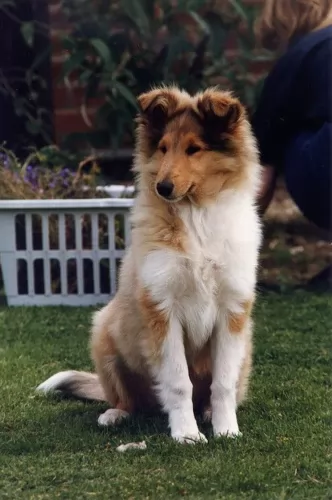 Many people have seen the movie ‘Lassie’, and of course this movie made the Collie popular and famous.
Many people have seen the movie ‘Lassie’, and of course this movie made the Collie popular and famous.
Apart from the Rough Collie, you also get the Smooth Collie. The Rough Collie’s origins start in the 1800’s in Scotland and Wales but unfortunately, the Rough Collie's exact origins are shrouded in lack of information.
These dogs were used as herding dogs in real-life and in movies, and it was in 1879 that the first English Rough Collie was imported to the USA, but it is the UK from whence the dog comes.
 Swissies, as they are often referred to as, are large, robust dogs, standing at 65–72cm and weighing anything between 50 – 70kg, with the females being slightly smaller and weighing a little less.
Swissies, as they are often referred to as, are large, robust dogs, standing at 65–72cm and weighing anything between 50 – 70kg, with the females being slightly smaller and weighing a little less.
He has big, rounded paws, medium length floppy ears, a broad chest and a long tail. This is a heavy-boned dog, strong while still being agile.
His dense, double coat is black, white and tan or rust, with black on top of the dog's back, ears, tail and legs. There are two rust dots above each eye. The coat can be short and straight to medium length, coarse and wavy. The dog sheds throughout the year with a major shedding a couple of times a year.
The Greater Swiss Mountain Dog is a sociable canine, thriving on being part of a loving human family. While he used to be a working farm dog, today he is essentially a family pet, though he loves to still be busy.
He is generally friendly with strangers, but just like with all other dog breeds, he will need to be trained and socialized to turn him into an even-tempered, obedient dog, capable of getting on well with children and pets in the the home.
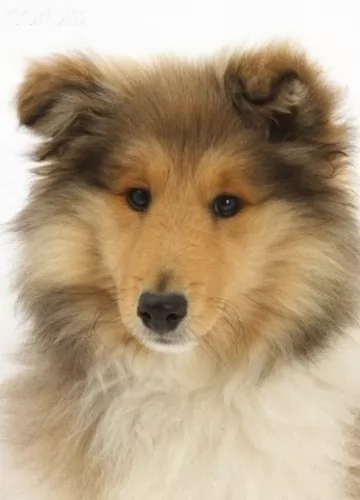 The Rough Collie or Long-haired Collie is considered to be a medium to large sized dog with a long, double-layer coat.You’ll find the coat mainly as tri-colored – white, fawn and dark brown and black.
The Rough Collie or Long-haired Collie is considered to be a medium to large sized dog with a long, double-layer coat.You’ll find the coat mainly as tri-colored – white, fawn and dark brown and black.
The Rough Collie stands at between 51 to 61cm in height and weighs between 18 and 30kg. The long, thin muzzled dog has semi erect, semi-floppy ears, sweet, gentle eyes and a long, plumed tail.
Rough collies are loving, gentle dogs who thrive on spending time with their human families. Their kindly nature makes them good therapy dogs.They don’t do well when left in the back yard on their own day after day. They’re social dogs who love playing with the children in the home and they get on well with other family pets.
The Rough Collie is highly intelligent and he is easy to train. With training and socialization he becomes so well behaved you can take him anywhere.
 The Swissy is an easy going dog and adapts easily into his human family’s lifestyle. He is big, but agile dog known for his gentle temperament.
The Swissy is an easy going dog and adapts easily into his human family’s lifestyle. He is big, but agile dog known for his gentle temperament.
While he loves the outdoors, he is a social dog and loves nothing more than coming indoors and being close to his human family.
He loves his family and won’t do well if left outside for days without human companionship. Treat him well and you’ll be rewarded with a loyal, loving 4-legged family member.
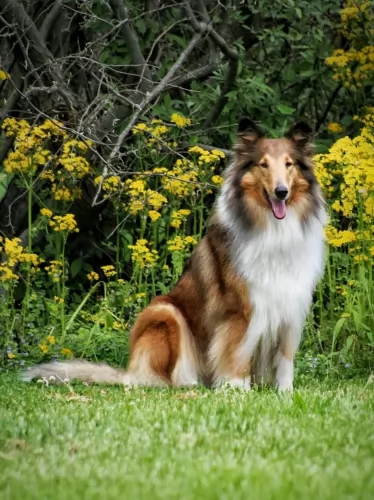 The Rough Collie is such an intelligent dog, but he is loving and devoted too. He can slot into life in the city or countryside because all he really wants is to be close to his human family.
The Rough Collie is such an intelligent dog, but he is loving and devoted too. He can slot into life in the city or countryside because all he really wants is to be close to his human family.
Wherever you live with your Rough Collie though, he will need to be well exercised. He is sweet but slightly timid and will want to be with a family that isn't too noisy in terms of lots of shouting.
People who have had Collies say these dogs make he most awesome pets, and in the right environment these wonderful intelligent dogs will make splendidly loyal, loving pets and companions,
 The GSMD or Sennenhund, as his name is shortened to, is a fairly healthy dog breed, with very few health issues.
The GSMD or Sennenhund, as his name is shortened to, is a fairly healthy dog breed, with very few health issues.
He has an average lifespan of 10 to 12 years, and although not likely, he can suffer from minor problems such as gastric torsion as well as female urinary incontinence. If your female dog is dribbling urine in her sleep, there are a number of reasons that can be causing it - bladder infections, a medical condition or a weakened bladder with spayed female dogs.
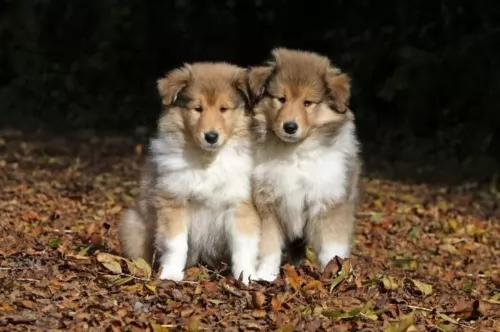 The Rough Collie can reach 12 to 14 years of age with good care. There are always some health issues to be aware of such as hereditary eye diseases. Also, as with most larger breeds, hip dysplasia is always a concern.
The Rough Collie can reach 12 to 14 years of age with good care. There are always some health issues to be aware of such as hereditary eye diseases. Also, as with most larger breeds, hip dysplasia is always a concern.
Other illnesses to look out for include cancer, skin allergies, bloat and Grey Collie Syndrome. As a responsible dog owner, get your pet to the doctor when you notice a change in his behavior – tiredness, vomiting, lethargy, unusual lumps, swelling and a feeling of depression.
This is a form of canine cyclic neutropenia which affects the Collie breed. There is a low concentration of neutrophils in the blood. It can be hereditary or it can develop because of a side effect of chemotherapy for instance. It is essentially caused by a defect in the bone marrow stem cells. Affected dog will always battle with gastrointestinal problems and infections of the eye.The life expectancy of a Collie with this ailment will be less than 3 years.
 The Greater Swiss Mountain Dog is a robust dog and thrives on a diet of kibble to raw meat to some cooked home-made food such as chicken, brown rice and vegetables.
The Greater Swiss Mountain Dog is a robust dog and thrives on a diet of kibble to raw meat to some cooked home-made food such as chicken, brown rice and vegetables.
A serious issue with the GSMD is overfeeding, resulting in uncomfortable digestive problems and of course, obesity.
Your GSMD isn’t a dog that is going to require a lot of exercise like some of the other dog breeds there are, but still his working career of the past requires that he still be taken on daily walks, enjoys ball- and rope games and to go swimming.
Brush your dogs coat at least twice a week to remove loose hears. Other grooming aspects include cleaning the ears to avoid infection, clipping his nails and brushing his teeth at least twice a week.
If you’re not sure how to do all these things, there are useful accessories for dogs that allow you to do all this grooming on your own. Your vet can also show you how as these are all things that will require ongoing attention.
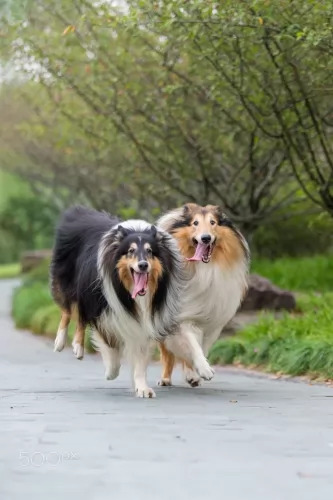 Your Rough Collie does shed so he will require a good brush twice a week. The long silky hair can matt so this grooming session will be important.
Your Rough Collie does shed so he will require a good brush twice a week. The long silky hair can matt so this grooming session will be important.
Your film-star collie is an active, athletic dog. He has always been used to herding sheep, and instinctively he wants to be active. His bright eyes are always alert to some action, and his exercise needs go beyond just allowing him to run around in your back yard.
He is the kind of dog that wants something more energetic such as going on hikes or long walks and running after sticks or balls on the beach.
A Collie is an energetic dog and will require the best dog food there is. If you give him commercially manufactured food make sure it is the right food for his size, his breed and his energy levels.
To add some variety, feed him some home-made food occasionally which can be added to his dry kibble twice a week. Boiled chicken, brown rice or pasta and spinach, sweet potatoes and carrots are a healthy choice for your pet. Try and feed him some raw meat occasionally. Ensure there is always a bowl of fresh, cool water for him.